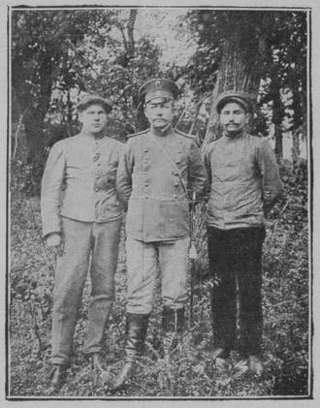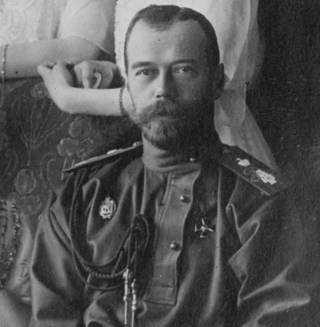“Thorough, lucid, and on all counts admirable . . . A Child of Christian Blood was researched almost entirely from primary sources by Levin, [and] he has done a superb job . . . This may well be the definitive book on its subject, and it is to be hoped that it finds a wide readership.”
—Jonathan Yardley, The Washington Post
A CHILD OF CHRISTIAN BLOOD: MURDER & CONSPIRACY IN TSARIST RUSSIA – THE BEILIS BLOOD LIBEL
A Jewish brick factory clerk is falsely accused of ritually murdering a Christian boy for his blood to make Passover matzo – the age-old blood libel. His trial in 1913 becomes an international cause célèbre.
On March 20, 1911, the body of a thirteen-year-old boy named Andrei Yushchinsky was found in a cave on the outskirts of Kiev, then part of the Russian Empire. He had been stabbed some four dozen times. Four months later, Russian police arrested Mendel Beilis, a 37-year-old father of five who worked as a clerk in a brick factory nearby, and charged him not only with boy’s killing but with the Jewish ritual murder of this Christian child. There was no evidence linking Beilis to the murder and he had a solid alibi, but the state had decided to charge a Jew with this horrible crime and Beilis was the most convenient choice.
As a handful of Russian officials and journalists searched for the real killer, the rabid anti-Semites known as the Black Hundreds whipped into a frenzy men and women throughout the Russian Empire who fanatically believed that this was only the latest example of centuries of Jewish ritual murders of Christian children.
Beilis was imprisoned for more than two years in horrific conditions before his trial in the fall of 1913, which made worldwide headlines.
Some of the era’s most esteemed personages rallied to Beilis’s defense, including Thomas Mann, H. G. Wells, Anatole France, Arthur Conan Doyle, the Archbishop of Canterbury, Jane Addams and Booker T. Washington. Pro-Beilis rallies in the U.S. drew thousands but nothing could stop the case from going forward.
With the full backing of Tsar Nicholas II’s teetering government, the prosecution called an array of “expert witnesses”—pathologists, clergymen, a psychological profiler—whose laughably incompetent and, in some cases, perjured testimony horrified liberal Russians and Beilis’s supporters in the West.
Among the witnesses the prosecution presented to the jury were: a pathologist who was paid a 4,000 ruble bribe; a drunken couple who had been plied with alcohol by an investigator; and a Catholic priest, pseudoscholar, and sometime con man who testified to the reality of the blood ritual. A star witness for the defense was a detective known as “Russia’s Sherlock Holmes” who tried to prove Beilis’s innocence and find the real killers, but was imprisoned by a vengeful state for his efforts. But the most sensational witness was the dark diva of the Beilis affair, Vera Cheberyak. A character worthy of one of the great Russian novelists, she was the leader of a criminal gang, and was very probably the mastermind behind the boy’s murder. Astonishingly, the state drafted her to become a star witness against Mendel Beilis.
Beilis’s fate rested in the hands of a largely peasant jury. After thirty-four days the trial came to a dramatic and ambiguous conclusion. The consequences reverberated far beyond the day of the verdict – into the Nazi era and beyond. A hundred years after the trial of Mendel Beilis, the blood libel is still with us.
_(2)-medium.jpg)


WHAT PEOPLE ARE SAYING ABOUT A CHILD OF CHRISTIAN BLOOD
“Deeply researched and carefully argued, [this ] is the most thorough, reliable, and readable book on the subject to date.”
—The Wall Street Journal
“Meticulous and utterly absorbing . . . Thrilling and suspenseful . . . A panorama of Russian life, full of villains and a few heroes, reminiscent of Dostoyevsky’s The Brothers Karamazov.”
—Former N.Y. Times Correspondent Richard Bernstein, Moment
“Good Morning America writer/producer Levin makes a century-old murder case come to life in a suspenseful true-crime thriller that had broad implications at the time. . . . [His] stellar re-creation of the personalities and events places them into the context of Russia during the last years of the tsar, and makes good use of records unavailable before the fall of the Soviet Union.”
—Publishers Weekly
"A page-turning history/true-crime story ... his easy narrative style makes the book read like a novel."
—Kirkus Reviews
“A simply outstanding, totally gripping book, elegantly narrated, deeply researched, and impossible to put down. It is a rare delight both as a brilliant history and a suspenseful whodunit that also refreshes a neglected though infamous story of terrible injustice that we should all know about: the Beilis blood libel—the Tsarist Russian version of the Dreyfus case.”
—Simon Sebag Montefiore, author of Young Stalin and Jerusalem: The Biography
“Long before O. J. Simpson and Amanda Knox, Mendel Beilis was the most famous defendant of his time—the last Jew ever to be tried for blood libel. Edmund Levin brings the bizarre episode to life with passion and precision. It’s a fascinating and cautionary tale, beautifully told.”
—George Stephanopoulos
“Levin does a lovely job of bringing alive the Beilis Affair in all its messiness. The portraits of the main players are engrossing. The research is solid. The writing is elegant.”
—Robert Weinberg, Professor of History, Swarthmore College
Author of Blood Libel in Late Imperial Russia: The Ritual Murder Trial of Mendel Beilis
Levin’s book is beautifully written and impressive in its scholarship, especially the use of archival materials that only recently have become available. I have rarely read a book of serious history with greater admiration and fascination.
—Albert S. Lindemann
Professor of History, emeritus, University of California, Santa Barbara
Author of The Jew Accused: Three Anti-Semitic Affairs: Dreyfus, Beilis, Frank

EDMUND LEVIN is a Writers Guild and Emmy award–winning writer/producer for Good Morning America. His writing has appeared in The New York Times, The Washington Post, The Wall Street Journal, The New Republic, The Atlantic, and Slate, among other periodicals, and was included in The Best of Slate: A 10th Anniversary Anthology. He studied Soviet and Russian affairs at Columbia University’s Harriman Institute and has traveled widely in the former Soviet Union.
Representation:
Renee Zuckerbrot-Renee Zuckerbrot Literary Agency LLC-(212) 967-0072 renee@rzagency.com
-x_small.jpg)